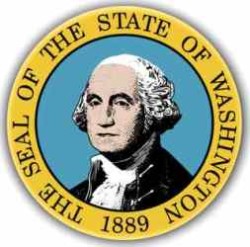Washington Reformists Advocate Overhaul Of Draconian Igaming Laws

In 2006 Washington State passed the most restrictive internet gambling laws in the USA after the Northwest state made playing online poker a Class C felony. Therefore, online poker players were bundled into the same category as arsonists and kidnappers and threatened with time behind bars if caught.
Despite being the first state to make it illegal, however, no individual has either been arrested or prosecuted under statute SSB 6613, which states:
“Whoever knowingly transmits or receives gambling information by telephone, telegraph, radio, semaphore, the internet, a telecommunications transmission system, or similar means, or knowingly installs or maintains equipment for the transmission or receipt of gambling information shall be guilty of a class C felony.”
Now it appears pro online gambling groups are organizing to not only have the Draconian law reformed, but also possibly pass online gambling legislation in the state.
Background to Washington’s igaming ban
Instrumental to statute SSB 6613 passing was the support it was given by the then Washington State Senator Margarita Prentice, ex-officio member of the Washington State Gambling Commission, whose attitude to online poker was so dismissive that she once told ESPN’s Gary Wise:
“You mean you’re going to move so you can play poker? Gee, lots of luck in your life..I have nothing against card playing. That’s fine. If you want to do that, but I’m sure not going to worry about someone.. Let them go pump gas.”
Nevertheless, not all Washington State lawmakers subscribed to Sen. Margarita Prentice’s extreme opinions at the time, and over the years several attempts have been made to overturn the statue, including an appeal that progressed all the way up to the State Supreme Court in 2010. Still, statute SSB 6613 continues to remain in force in Washington State, and as Chris Stearns, the Commissioner of the Washington State Gambling Commission told bluff.com reporter Steve Ruddock, last month:
“There have been a few efforts in both the legislature and by way of initiative to repeal or lessen our State ban on internet gaming but those have not advanced very far.”
Tribal interests at stake
In Washington residents are given gambling options to either wager at state run gambling venues offering bingo, cards, horse racing, or lotteries; or alternatively at the state’s Tribal Casinos, which offer the full range of casino games and slot machines.
Washington’s Indian tribes continue to exert much influence over the state capitol, and it has therefore been suggested that tribal interests have proved particularly successful in protecting their gaming monopoly on land-based casinos by lobbying against future gambling expansion. Consequently, even unregulated, offshore sites such as PokerStars, Full Tilt, Bovada, and Carbon Poker have decided not to offer their products in the state.
Times have changed
One thing that has changed, though, is that Margarita Prentice’s 20 year reign in the state Senate ended last year, thus encouraging igaming activists, such as Curtis Woodard from the Washington Internet Poker Initiative, to believe the time is right to organize a new drive to change the state’s online poker law.
“The goal this year is to come up with a measure that can be agreed upon in the next session in 2015 that runs January-April. Failing that we can look at an initiative drive for next year that would likely put the measure on the ballot in 2016,” explained Woodard.
Of particular importance to any potential future success, however, is convincing all interested parties that their positions were being safeguarded, with Curtis Woodard stating: “I want the Tribes to give some input to assure they know we are concerned about their interests.”
How would Washington deal with a federal online poker bill?
Given the state’s extreme stance against online gambling, it would come as a major surprise if The Evergreen State did suddenly perform a u-turn and pass online poker legislation of its own. Even a federal online poker bill being introduced at some stage in the future would not necessarily see Washington joining a resurgent national industry.
That said, Washington State is obviously not against gambling per se, with its past objections to igaming revolving predominantly around having to deal with a mass of unregulated sites who continue to operate within the grey market. Therefore, if a federal bill was passed the state’s politicians could eventually come around to the game, and sounding a rare note of optimism for the future, Washington Internet Poker Initiative group, commented:
“As internet gaming, including internet poker, grows in popularity and in legal markets across the United States, the Washington State Gambling Commission has made a concerted effort to monitor developments in order to learn how other jurisdictions are regulating and safeguarding internet gaming.”










